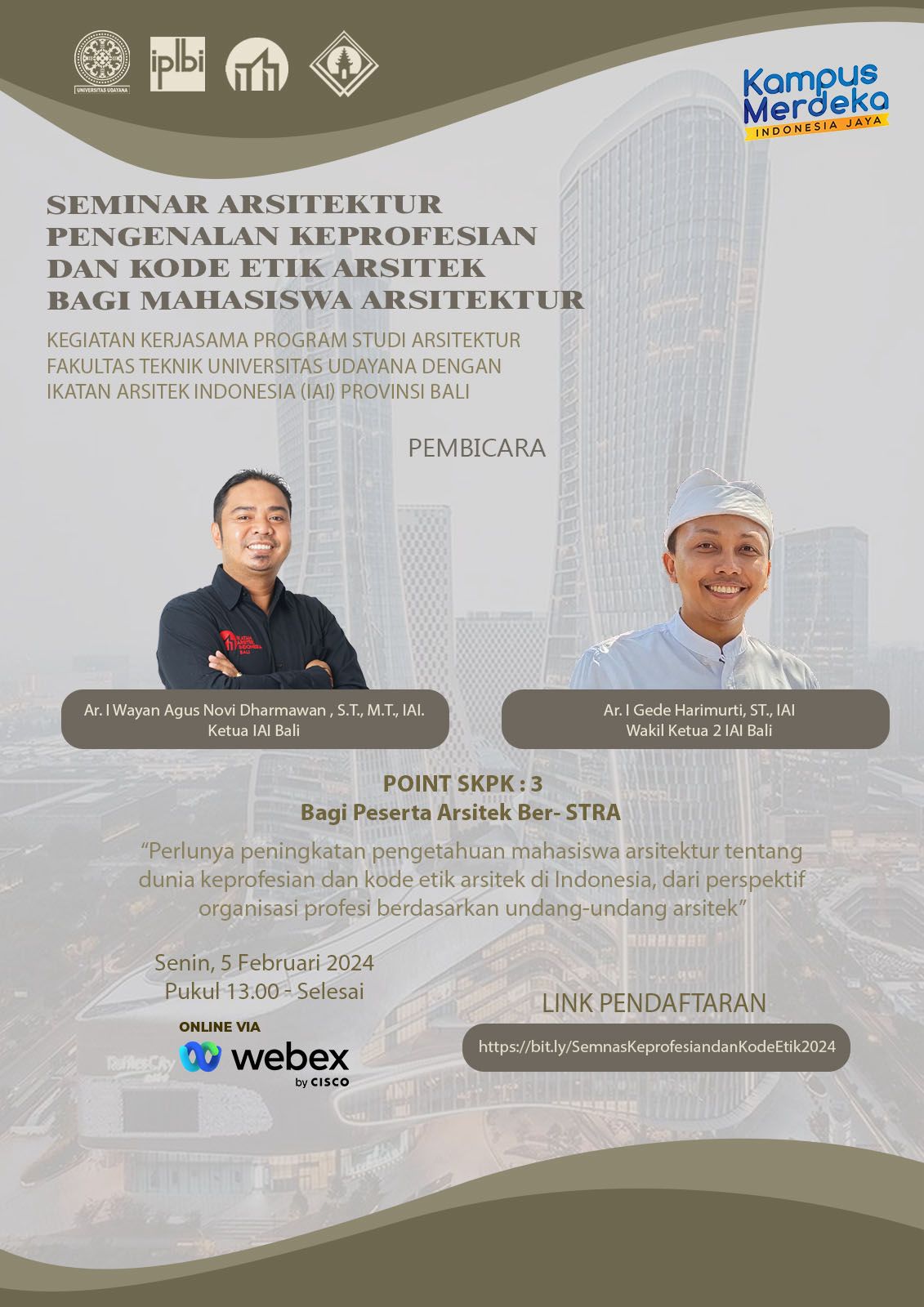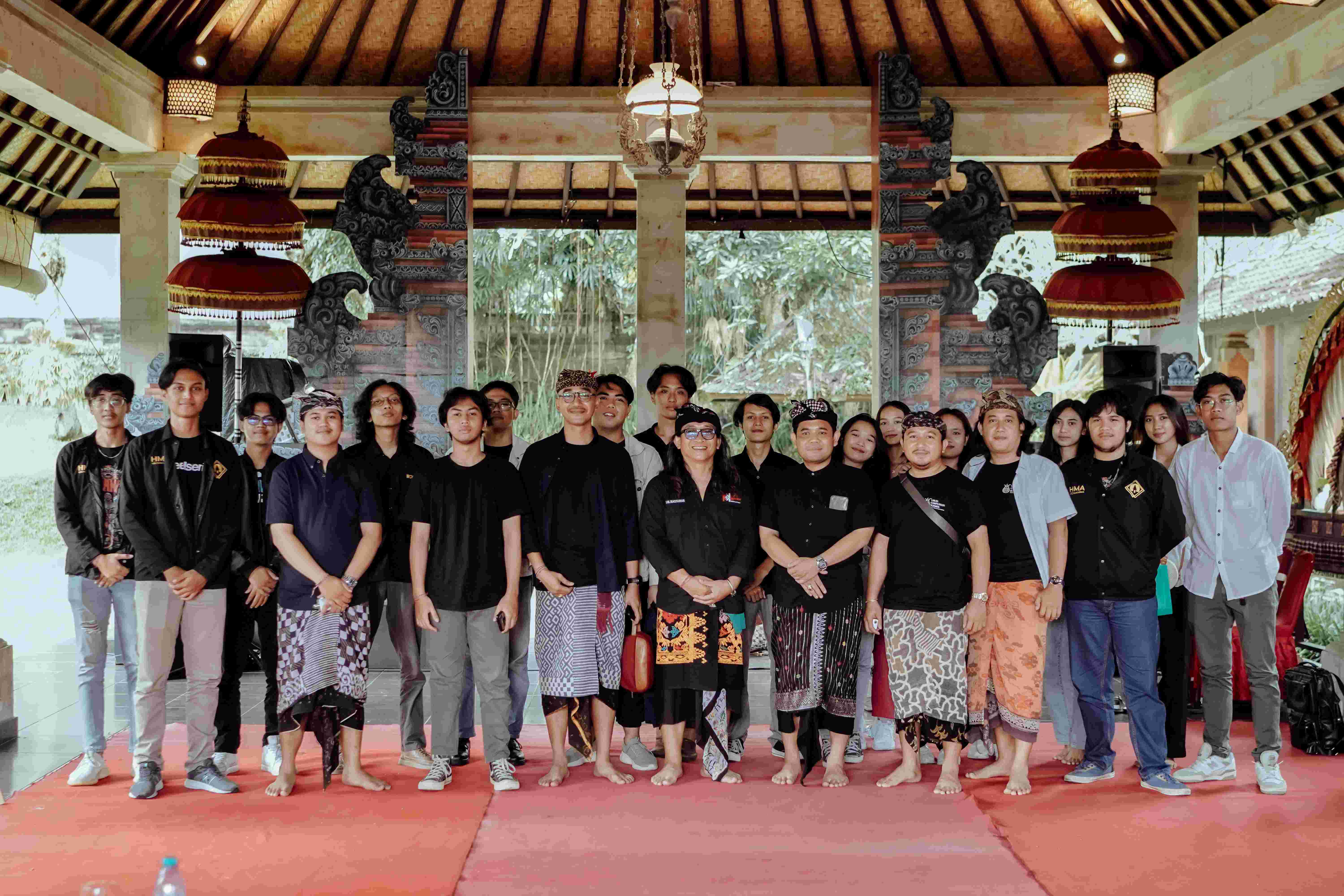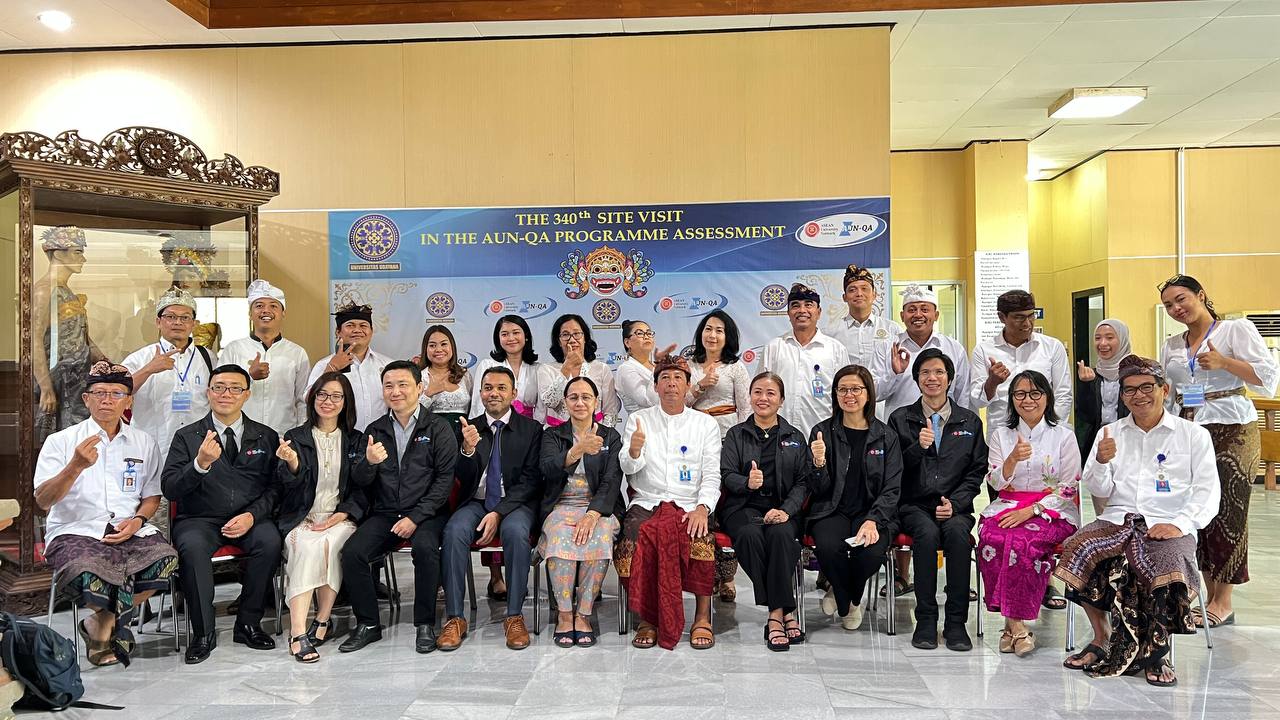SAMARTA (Seminar of Architecture and Space Planning)
Link: https://drive.google.com/file/d/1M3azhDcyd10A0Bk8z5Ct5bJm8LUu6uYr/view
ACTIVITY DESCRIPTION :
Communities are expected to have the knowledge, ability, and capacity to absorb disturbances and rearrange their order when undergoing changes so that they are able to maintain the same function, structure and identity. This community resilience capability is an effort to strengthen the community's capacity to overcome difficulties, including in the event of a disaster. Meanwhile, the technology owned by the world community has not been able to accurately predict natural disasters. Therefore, the community needs to be prepared to face disasters.
Regarding the disasters experienced by the community, the Architecture Study Program of Udayana University took the initiative to provide media in a national seminar activity to exchange knowledge, information, and experiences on disaster mitigation from the perspective of culture, the built environment, and architecture. An understanding of culture, the built environment and architecture has a role in actualizing the concepts of resilience and disaster mitigation, especially in overcoming the threats of climate change, deforestation, land degradation, pollution, floods, and earthquakes.
SAMARTA 2021 will be held on November 23, 2021 in Denpasar, Bali, Indonesia, online with the theme:
Architecture, the Built Environment, and Culture: The Post-Pandemic Space (The New Normal)
Abstracts and papers will be peer-reviewed. The targeted participants are those who have been involved or interested in cultural issues, the built environment, and architecture, ranging from academics, practitioners, decision makers, architectural and environmental experts, social activists, policy advocates, non-governmental organizations, and students. Participants are also cordially invited to take part in – but not limited to – the following sub-themes:
- Architecture and built environment.
- Local identity, and aesthetic value in the post-pandemic era.
- Historical and socio-cultural values ??of cities, urban areas, as a reference for planning in the post-pandemic era.
- Attitudes of architects and designers in structuring buildings and areas in the new normal era.
- Economic issues in architecture and urban design in response to the new normal.
- A design approach that can be an alternative in the post-pandemic era.
- Culture.
- Strengthening and responding to culture, traditional design, and local wisdom after the pandemic.
- Another theme that is not limited to the sub-themes above but is related or related to the values ??of local wisdom after the pandemic.
For further information: https://samartaarsitektur.unud.ac.id/



FACULTY OF ENGINEERING